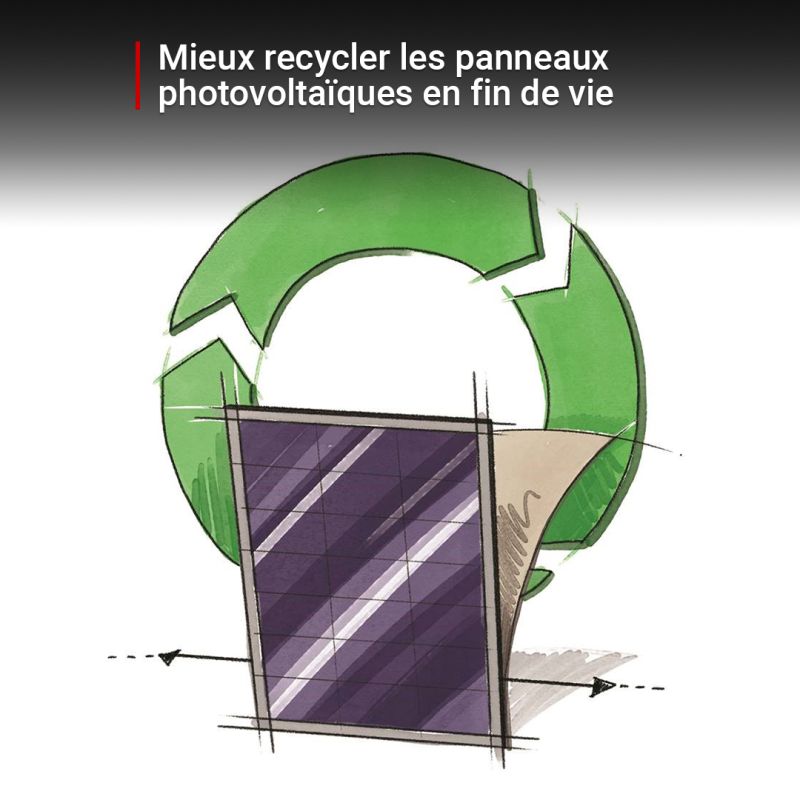From pv magazine France
The new energy technologies and nanomaterials (Liten) branch of the French Alternative Energies and Atomic Energy Commission claims to have developed a low-polluting and low-energy delamination process to recycle photovoltaic panels at the end of their lifecycle.
The technique consists of using a diamond wire to cut through the photovoltaic cells, separating the module's glass front face from the polymer-based backsheet. “Using a laboratory-scale version of the new process, it took just a half-hour to separate the two surfaces — which are only a few hundred microns apart — of a typical one-square-meter panel,” the scientists explained. “The recovered glass can then be recycled using a separate process.”
The French scientists added that a hydrometallurgical treatment can also be used to separate and recover the various metals from the powder produced during the wiring process.
A European project will begin soon to develop industrial equipment capable of processing several modules per hour. “This equipment will use a reel-fed diamond wire so that its wear can be monitored,” the research institute stated. “Solutions that cool the polymer to improve its cutting behavior are also being investigated.”
Popular content
CEA Tech recalls that, as photovoltaic modules have a lifespan of around 30 years, more than 10 million tonnes of end-of-life or defective products should be recylced in Europe by 2025.
Today, the most widely used recycling solution is to crush the modules and use them as backfill in the construction industry. As for the thermal techniques, they remain expensive in energy and harmful to the environment, according to the CEA-Liten experts, who believe it is urgent to find new recycling solutions to recover metals such as silicon, silver and copper.
This content is protected by copyright and may not be reused. If you want to cooperate with us and would like to reuse some of our content, please contact: editors@pv-magazine.com.



By submitting this form you agree to pv magazine using your data for the purposes of publishing your comment.
Your personal data will only be disclosed or otherwise transmitted to third parties for the purposes of spam filtering or if this is necessary for technical maintenance of the website. Any other transfer to third parties will not take place unless this is justified on the basis of applicable data protection regulations or if pv magazine is legally obliged to do so.
You may revoke this consent at any time with effect for the future, in which case your personal data will be deleted immediately. Otherwise, your data will be deleted if pv magazine has processed your request or the purpose of data storage is fulfilled.
Further information on data privacy can be found in our Data Protection Policy.